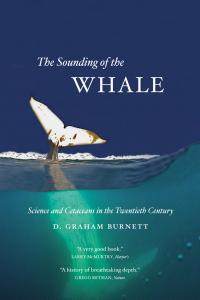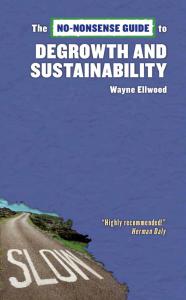Despite its title this is not a book about whales, or even a book about whale research itself. Rather it focuses on the politics of the international whale research effort and on the gradual dawning of awareness regarding whales and dolphins (collectively known as cetaceans) in a human population, most of whom had never seen any of the great sea mammals.
Burnett traces whale research from the earliest days of the twentieth century, when a British researcher, Sydney Harmer, tried…
Wright, Jim
Wright, Jim
Jim Wright
As Karl Polanyi described in his book The Great Transformation, the last few hundred years have seen a constant and conscious drive to create a completely marketised economy, based on 'economic man': citizens whose motivations are completely those of self-interest, expressed entirely through the monetised economy.
While market enthusiasts believe (and enthuse) that markets and economic ‘man’ are based on natural laws, it is obvious that reality doesn't conform to their…
Karl Polanyi’s The Great Transformation was one of the most significant economics books of the 20th century.
Polanyi was an Austrian-born historian and economist who mixed in Viennese intellectual circles with the founders of neoliberalism, Ludvig von Mises and Fredrich Hayek. But Polanyi was a lifelong critic of his neoliberal contemporaries and, in The Great Transformation, he sought to show how markets are neither natural nor inevitable, but instead have been…
Make no mistake, this is not a guide to degrowth and sustainability. It is instead yet another description of the perils of the growth model – but still well worth reading on that basis.
Compact and directly written, it will be an enjoyable, rewarding, and fact-filled read for anyone concerned with the environment, the quality of our lives, and our current economic disparities.
In the first six chapters, Ellwood analyses capitalism, and why growth is not just a goal of…
This small and accessible book describes how gross domestic product (GDP) became the world’s leading economic indicator and how its use deforms the political landscape, encouraging economists to focus on growth where previously they had been more concerned with describing the state of the economy as they found it.
As Fioramonti shows, our slavish attention to the annual GDP number has changed the ways in which we think about our world. GDP takes no account of things we produce but…
The Alberta tar sands in Canada may be the largest hydrocarbon resource in the world, as well as the largest single potential source of climate-warming carbon dioxide. If the tar sands are completely exploited for fuel, 240 billion tons of carbon will be added to the atmosphere and global temperatures will rise 0.4°C from this source alone. At the same time, mining, pipelines, and ocean shipping threaten devastation in places stretching from one end of North America to the other.
…
The use of military drones by Israel and the US has caused a revolution in how conflicts are fought and severely challenged our concepts of international law.
European nations were caught off guard and have rushed to catch up with their competitors, fearing becoming dependent on outsiders for military technology.
This detailed report on European involvement in the race toward autonomous warfare, explores the…
In the end I found it an engaging read, simply written, about complex ideas. He refuses to hedge words, to compromise in order to create allies, and in some cases he seems to have gone over the top, intentionally provoking friends and enemies alike.
Atzmon…
OCCUPY MOVEMENT (United Kingdom)
Categories covered: City; County; Location in City; Date started ; Population; Website(s); Phone Contact; Email Contact; Twitter; Other notes
London Greater London Location in City: WEB
http://theoccupytimes.co.uk; email contact: olsx.indymedia@gmail.com; twitter .@occupytimes
Britain …
As we saw in the last issue, drones are the hot new weapons of the 21st century. While drones have been around for decades, mostly as small, short-range and unreliable surveillance planes, a convergence of technological factors in the last decade have taken them to the forefront of the arms race.
With the rapid emergence of sophisticated drones in the last few years, Britain was caught flat-footed without a capable domestic drone system. The response was two-fold. Firstly,…
Unmanned aerial vehicles (UAVs), also known as drones, are aircraft either controlled by “pilots” from the ground or, increasingly, autonomously following a pre-programmed mission. While there are dozens of different types of drones, they basically fall into two categories: those that are used for reconnaissance and surveillance purposes; and those that are armed with missiles and bombs.
The use of drones has grown quickly in recent years because unlike piloted aircraft they…
In 1963 a young Gene Stoltzfus, Mennonite conscientious objector, found himself working with International Voluntary Services in Saigon, Vietnam. Daily faced with the carnage of the Vietnam war, he had to ask himself “whether I was as willing to die for my convictions as the Vietnamese and American soldiers all around me were being asked to do.”
His answer led him to a 45 year career in peacemaking, first with a succession of Mennonite organisations, and latterly as co-founder of…









